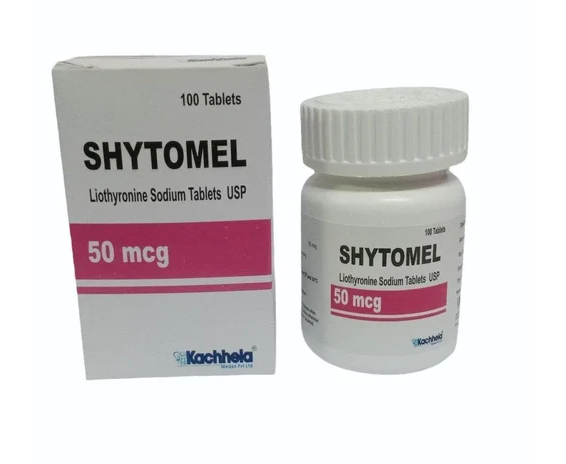Levothyroxine/Liothyronine Sodium Capsules

Liothyronine Sodium Capsules are a synthetic form of the thyroid hormone T3, used to treat hypothyroidism by helping regulate the body’s energy and metabolism. They are often prescribed when the body does not produce enough natural thyroid hormone, leading to symptoms like fatigue, weight gain, and depression.
Liothyronine Sodium Capsules helps with:
- Boosting energy levels in individuals with underactive thyroid
- Improving metabolism to aid in healthy weight management
- Enhances mood and mental clarity by restoring hormonal balance
Overview
Liothyronine Sodium Capsules offer a range of benefits for individuals dealing with hypothyroidism or low thyroid function. As a synthetic version of the T3 hormone, liothyronine works more quickly and efficiently than other thyroid medications that rely solely on T4, which the body must convert to T3. By providing direct T3 supplementation, this medication helps restore healthy hormone levels, leading to improvements in energy, metabolism, and mental focus. Many patients experience reduced fatigue, improved mood, and better tolerance to cold temperatures after starting liothyronine, especially if they had limited success with T4-based treatments alone.
In addition to treating hypothyroidism, Liothyronine Sodium Capsules may also be used in certain cases of thyroid suppression therapy, helping manage goiters and thyroid cancer. Some individuals with treatment-resistant depression have found benefits from liothyronine as an add-on therapy, as it can support brain function and emotional balance. Furthermore, because of its ability to enhance metabolic function, it may aid in weight management for those whose thyroid issues have led to unexplained weight gain. However, it’s important to use this medication under the supervision of a healthcare provider to ensure safe and effective results tailored to individual health needs.
Liothyronine (L-triiodothyronine or L-T3) is a synthetic sodium salt of the endogenous thyroid hormone triiodothyronine (T3). The oral tablet is indicated for use as replacement or supplemental therapy in the treatment of hypothyroidism of any etiology, except transient hypothyroidism during the recovery phase of subacute thyroiditis; as a pituitary thyroid-stimulating hormone (TSH) suppressant in the treatment or prevention of various types of euthyroid goiters; and as a diagnostic agent in T3 suppression tests. Liothyronine injection is indicated for intravenous use in the treatment of myxedema coma/precoma. Either form of liothyronine may be used for patients who are allergic to desiccated thyroid or thyroid extract derived from pork or beef. Supraphysiologic thyroid hormone concentrations may occur following orally administered liothyronine, but not after intravenous administration. Liothyronine is potentially more cardiotoxic than levothyroxine. However, due to the faster onset of action and the need to peripherally convert levothyroxine (T4) to the biologically active T3, liothyronine has been recommended for treatment of myxedema coma. There are no comparative studies available. Levothyroxine is generally considered the most appropriate of the thyroid replacement agents for long-term treatment of hypothyroidism. However, a small randomized clinical trial demonstrated improvement in mood and neuropsychological function of hypothyroid patients with partial substitution of liothyronine for levothyroxine. Liothyronine received approval for use by the FDA in 1954.
Liothyronine Sodium Capsules offer a range of benefits for individuals dealing with hypothyroidism or low thyroid function. As a synthetic version of the T3 hormone, liothyronine works more quickly and efficiently than other thyroid medications that rely solely on T4, which the body must convert to T3. By providing direct T3 supplementation, this medication helps restore healthy hormone levels, leading to improvements in energy, metabolism, and mental focus. Many patients experience reduced fatigue, improved mood, and better tolerance to cold temperatures after starting liothyronine, especially if they had limited success with T4-based treatments alone.
In addition to treating hypothyroidism, Liothyronine Sodium Capsules may also be used in certain cases of thyroid suppression therapy, helping manage goiters and thyroid cancer. Some individuals with treatment-resistant depression have found benefits from liothyronine as an add-on therapy, as it can support brain function and emotional balance. Furthermore, because of its ability to enhance metabolic function, it may aid in weight management for those whose thyroid issues have led to unexplained weight gain. However, it’s important to use this medication under the supervision of a healthcare provider to ensure safe and effective results tailored to individual health needs.
